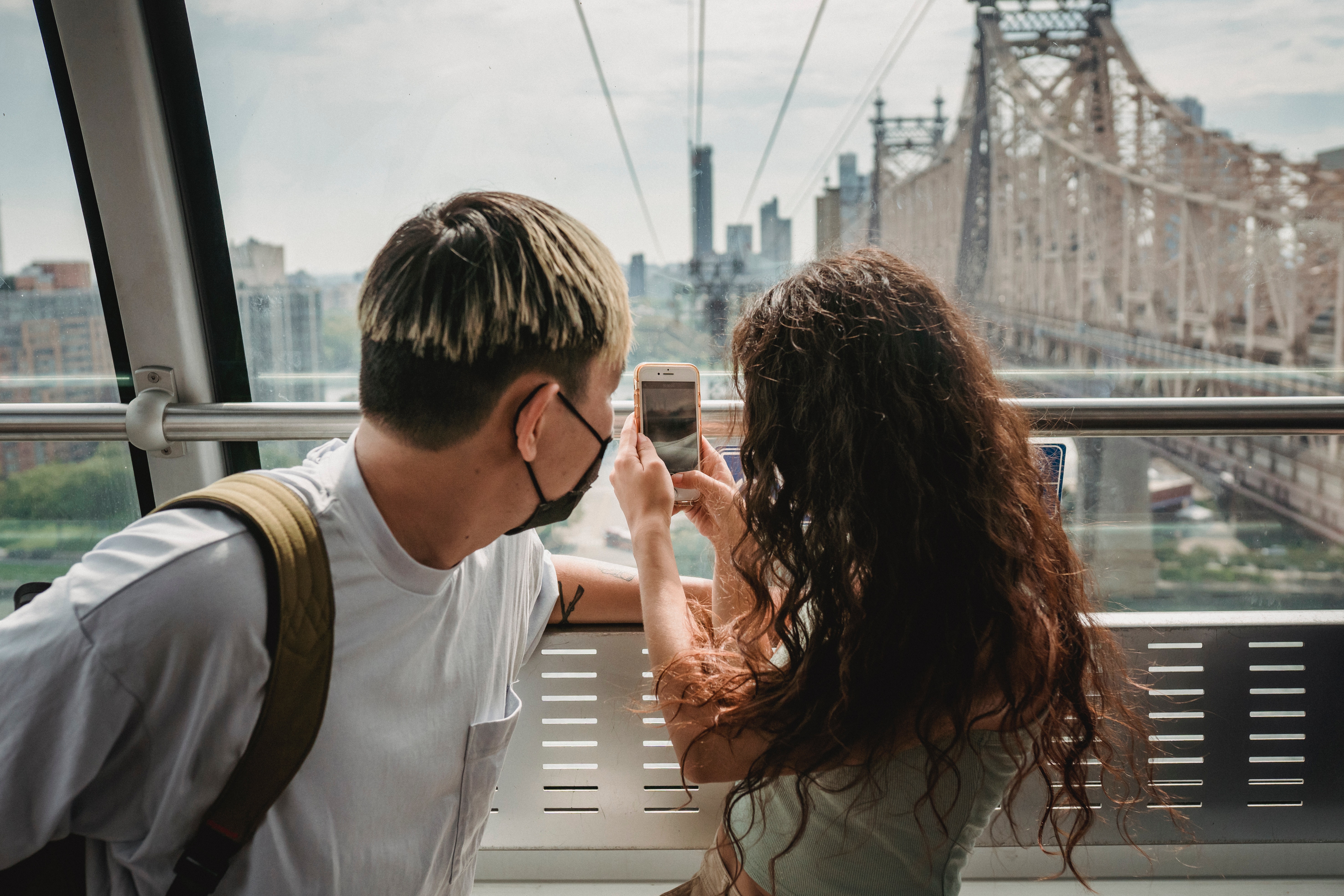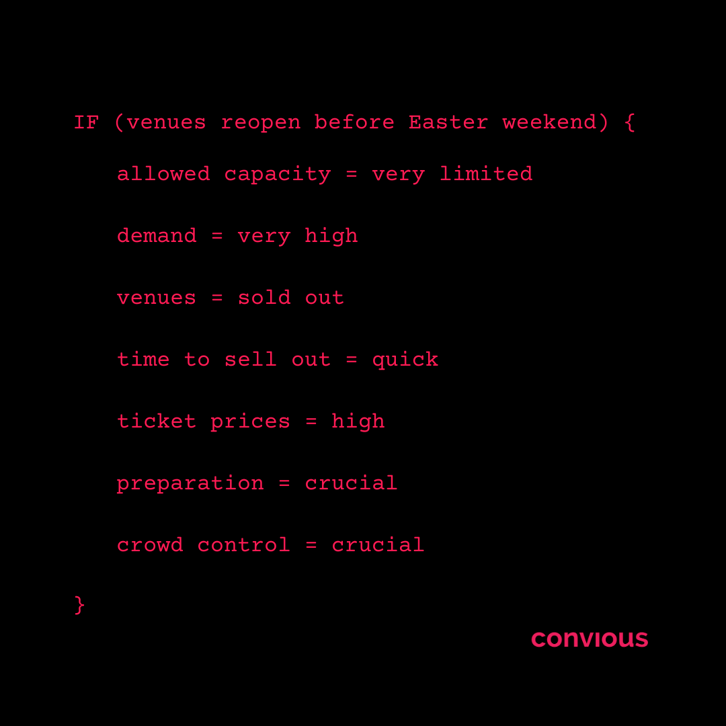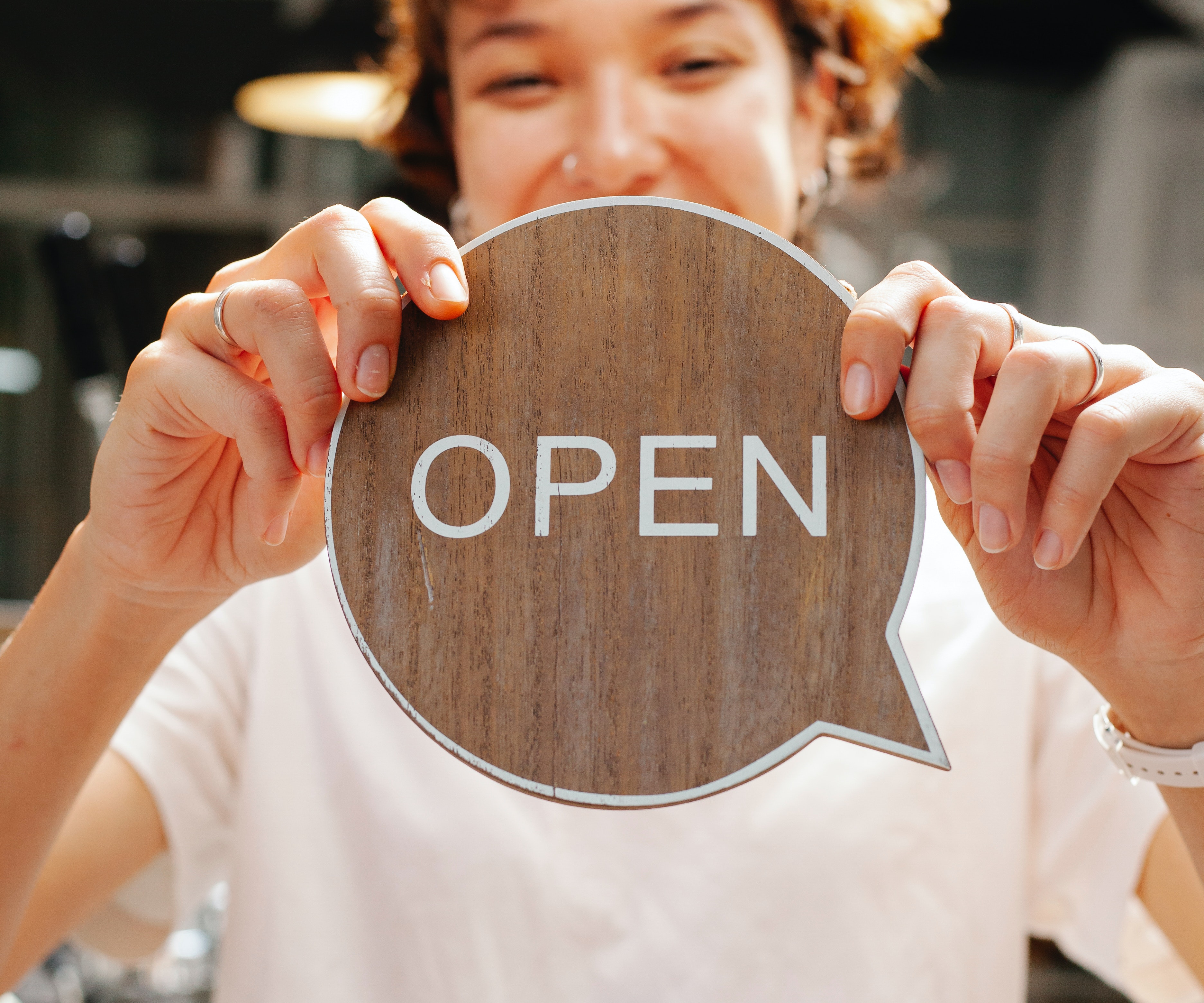Bridging experience and technology to adapt to a post-pandemic world
Now that we are going through this pandemic; we all miss our freedom, our spontaneous trips, and our experiences. After being stuck at home for so long, everyone is feeling a bit nostalgic about the days in which we would spend a family day at our favourite theme park or could spend hours talking at a cafe with a friend.
We are now much more grateful for all of those little things that used to put such a big smile on our face. Because, at the end of the day, that is what matters the most; the memories and experiences that bring those moments of happiness to us. And that is actually what we are going to be talking about today; the experience economy and the different elements that revolve around it, especially now that our priorities and values have shifted so much due to the pandemic.
As this is a broad and complex topic, we decided to interview Marjolein van den Velde, Benelux sales manager at Convious, and Suania Cereceda Fiol, Convious’ inbound marketing manager. They both gave us some insights on how the pandemic has shaped the experiences within the industry and how attractions should address the new changes and turn them into opportunities.

So, Marjolein, you talk with partners and operators within the Experience Economy on a daily basis, could you explain to us what the experience economy is or how it differs from the “service” economy?
Marjolein: Creating memories, that is exactly what you do when you are on a day out, what we see is that people are missing those opportunities at the moment; they cannot go to theme parks, they cannot go to museums, etc. Obviously, there are a lot of other things they can also not do, but it is exactly those memories that we help to create together with our partners.
So, just to illustrate this with an example, let’s say you focus on a service, such as a cab drive. Imagine we need to go from point A to B, we jump into a taxi. In the service economy, the taxi would take us from one place to the other, we would pay the driver, and that would be the end of it. But now imagine instead, that the taxi driver offers you a paper towel to clean your hands and then he or she offers you a snack and tells you to open the cars’ middle compound to get your drink out of it. In the meantime, he tells you that on the right-hand side you can see the Rijksmuseum, and adds interesting anecdotes about the places you are driving through on the route.
Well, that cab driver has just turned a simple transportation service into a full-on experience, not just highly increasing its value, but also making sure that you always remember that unique cab ride, and probably inviting you to share that uncommon experience with your friends. And this is exactly what we aim for together with our partners, to deliver the guests an unforgettable memory that will stick with them.
Suania: Yes, it is actually exactly what Marjolein is saying. I don’t know if you guys know, there’s a writer that’s called Maya Angelou and she has this famous quote “They may forget what you said, but they will never forget how you made them feel”, and I think the experience economy kind of revolves around this idea centered on emotions and feelings.
In the example that Marjolein explained, you will never forget how you felt during the cab drive; you probably will forget about the colour of the car or the name of the driver, but you will never forget about the emotions you felt throughout the journey.
Marjolein: This actually reminds me of a quote that came across a long time ago but it was so powerful that still sticks with me today. When Disney employees are going to leave a backend area and go out to a public, client-facing area, they always have these signs on their doors that say “smile, you’re on stage”. Because people are one of the elements that have a great impact when it comes to how the customers feel and experience their visit.

But how can businesses focus on that experience when they’ve had to close their doors to visitors for such a long time?
Marjolein: We’ve seen some great initiatives in The Netherlands from several areas, back at the beginning when COVID19 first struck.The venues were braving themselves until it became unfortunately clear that the closure of the parks would last for a while. That was actually when I saw a lot of parks jumping into highly creative initiatives because they realised that they would not be able to engage with their visitors in the venues, simply because they were not allowed to open.
So, for example, Blijdorp launched a campaign that said , “if you can’t come to the animals, the animals will come to you”. The reason behind this is quite clear: they want to stay on top of the mind of their visitors for when they reopen. Blijdorp was actually a leader in realizing that remaining in contact even though your visitors are not allowed to come and visit you would have a huge impact at the time of their reopening.
Suania: I also remember how Plopsa was about to launch a new rollercoaster just before the COVID19 came in. What they did to bring that experience to their visitors, was launching it virtually instead.
Marjolein, you mentioned how due to COVID19, many attractions and parks around the world are currently closed, which has had an enormous impact on their profitability and prosperity. What are the main struggles and challenges that you are noticing when talking to these venues?
Marjolein: I think that the biggest trouble was and still is uncertainty; there is no perspective. When we look in countries around us, Belgium has been able to partially open the leisure venues up again, the UK has dates for leisure venues to open, we also see examples in Germany. But if we look at The Netherlands, this perspective is still very unclear, and I think the uncertainty is the hardest battle so to say.
On a more positive note, we also see leisure venues using this time to make improvements and review their processes. That has actually led to a lot of conversations with potential partners that are quite critical on how they have been forced at the beginning of last year to move from offline ticket sales to online ticket sales, hence this being a requirement from the government, and some of these venues might have been forced into a solution because they had to come up with something quick.
So, we advise them to make the most of the time now to engage with their customers, but maybe more importantly, review and optimize their internal processes, in which the right technology can be a deeply transformational element and ultimately, the life-saver in the current rapidly changing circumstances.

Suania, what are some of the things that these venues can do in order to turn these challenges into opportunities?
Suania: As Marjolein said, this is a great time to do the hard operational work, not only within your venue's physical world (like using this time of closure to re-paint your rides or do maintenance work), but it is also the perfect time to optimize your digital processes and get serious about your venue's digital transformation. Because it's time to understand that it is not only about buying a ticket; the visitors’ experience starts at home, so you have to be very sure that your process is adapted to that; buying tickets should be very easy and frictionless, but so should the entire online experience before and after that.
Although new technologies might sometimes take time to implement or get used to, the wins and return on that investment long term is much higher than not doing so. Also, it's an exceptional time to implement crowd control, or experimenting with technologies such as dynamic pricing in your venue, and watch your revenue results be maximized and boosted even when you're operating at limited capacity.
Marjolein: What we also hear back from many partners is that selling online has also made their staff and resource planning a lot easier. With the right technology in place such as predictive analytics and data-driven automated reporting, they are now able to have much more control over what is happening in their venue real-time, as well as how the following days will look like in order to organize their resources and staff more effectively.
Suania: And not only that, you can plan on staff but you can also plan on marketing budget, so if you see that some of the days coming forward don’t look so promising, you can invest your marketing budget there rather than putting your efforts in filling some other day that might be already full. It helps you plan and be strategic, with data being the fuel of it all, collected through owned digital channels.
Marjolein: The funny thing is most of the times that I have a conversation with leisure venues, I always inform them that ticketing and being able to buy tickets online is actually the least interesting of what we do! We start at the beginning of the customer journey, from the awareness stage until all the way they are back home after their visit, and we aim to give them an outstanding experience at every single touch-point.
And from a marketing perspective, what do you think is the best approach for venues to take when handling the mistrust, unpredictability and changed expectations from their visitors?
Suania: Well, I am a huge fan of Hubspot and the methodology they have on how to grow your business - which puts the customer at the very center of it all; and that should always be the starting point of your strategy, more so now, making sure that all the touch-points of the customer journey are optimized for not only conversion but also, just a pleasant and inviting experience that will exceed their expectations.
The reality is that your visitor won’t actually remember you for the ticketing experience they had, but they will remember you for the great experience they had. So, I think, marketing-wise, thinking about these 3 major stages or touch-points - which in our case would be pre-visit, in-visit, and after-visit - is crucial. The way you make your customer feels at all three stages is where the key to your success lies. Not just when they are in your venue or park's premises, but thinking in much more holistic approach.
Suania, Marjolein, how do you see the market evolving in the following months, and can we have our champagne bottles ready for a successful summer reopening or will we have to hold our horses for a bit longer?
Marjolein: We are seeing possibilities for venues to open the weekend before Easter. Of course, there will be restrictions; it will not be back to normal as we have known it. If however there is a setback, everything gets delayed again, but I believe it is very important to keep hope (there’s no life without hope) so we aim for easter.

Suania: Last summer was one of the best summers ever according to many of our partners. Things as "staycations" came around; people will still want to explore new experiences but not too far from home, so a lot of local experiences will be re-boosted. People are craving to go out and reconnect with nature and themselves; they miss the thrill and adventure. So I think whenever the industry can open its doors to their visitors again (hopefully, we can do that before Easter) things will look promising for the attractions industry.

To sign off, what do you both think is the main lesson that the industry can take away from this unprecedented and unusual pandemic year?
Suania: Well, I think this was something that we already knew, but right now it is more important than ever thinking of your customers in a 360 way, not only when they cross your doors and they leave, it is not only that period when you can be in touch with them, but throughout the whole customer journey.
In the end, the leisure industry is all about having fun, creating experiences and you as a leisure venue manager, or attraction owner, are responsible for that. The challenge (but also the opportunity) is to stretch out that fun and experience across all the different touch-points along your customer journey. I think that is one of the greatest lessons we've learnt.
Marjolein: I think we have also learned that the leisure industry is very flexible, they can rapidly adapt to changing environments. For example venues which had never sold online before are now selling 90% of their tickets online within a heartbeat; that says something about the industry. So, I think we can praise the attitude of the attractions industry as a whole; that they are resilient, and that by thinking creatively we will overcome these challenges together.
We have gone and we are still going through complicated times, where uncertainty is affecting all of our decisions, plans, and even lifestyle. We don’t know when this pandemic will be over and therefore, what you can do is embrace change, and take it as an opportunity to improve your business and get ready to surprise your visitors when they are back in your venue, which will hopefully be soon.
Remember that technology is the key right now, you need to make sure that you stay on top of mind and that you are in connecting with your visitors throughout the whole customer journey. As we have said earlier, your customers’ experience starts at home, and you are responsible for providing them the unforgettable new memories that they are so strongly craving for.